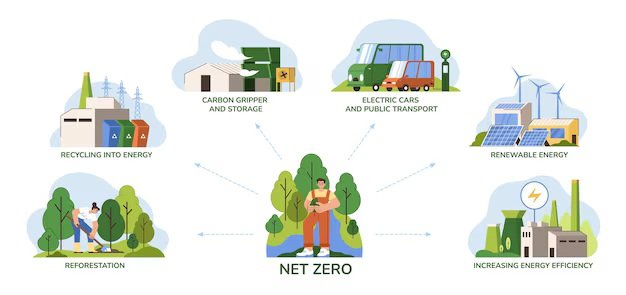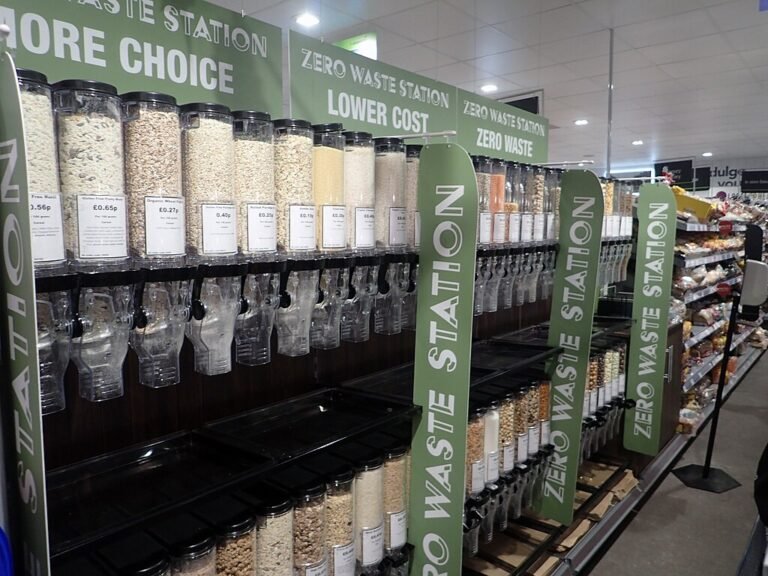20 Eco-Friendly Business Ideas for Students
There is an ongoing sustainability trend that is becoming more popular than ever. Consumers’ preference for green products and eco-friendly services is an effective way to mitigate human-induced climate change. The trend has made businesses reconsider their impact on the environment.
Aspiring entrepreneurs, especially students, can start small by prioritising sustainability to attract eco-minded consumers. Businesses established with sustainability principle benefits the environment and also have the potential to be profitable.
In this article, we will look at innovative, eco-friendly business ideas that students can start with minimal resources. We have listed business ideas suitable for students to create positive change while the business yields profits. Fasten your seatbelt as we examine the world of green entrepreneurship and discover profitable and sustainable business ideas for the future.

In This Article
- #1. Eco-Friendly Cleaning Service
- #2. Sustainable Garden Supply
- #3. Eco-Friendly Beauty Products
- #4. Solar Panel Installation
- #5. Organic Catering
- #6. Reusable Water Bottle Business
- #7. Local Recycling Business
- #8. Green Pest Control
- #9. Recycled Art
- #10. Green Interior Design
- #11. Upcycled Furniture
- #12. Green Gift Shop
- #13. YouTube Channel on Sustainability
- #14. Second-hand Retail
- #15. Eco-Friendly Toy Business
- #16. Sustainable Fashion
- #17. Eco-friendly Landscaping
- #18. Environmental Publication
- #19. Bicycle Repair and Refurbishing
- #20. Composting Business
What Is an Eco-Friendly Business?
An eco-friendly business focuses on promoting sustainability by incorporating environmentally conscious practices into its production and services. These are businesses that prioritise sustainability and offer products and services designed to have minimal negative impact on the environment.
Eco-friendly businesses are committed to reducing their carbon footprint. These businesses use sustainable materials that are non-toxic, compostable, and biodegradable. Their products are manufactured with fewer resources and energy. Green businesses are focused on reducing pollution and promoting a sustainable product that meets the demands of eco-conscious consumers.
Why Eco-Friendly Businesses Are Growing?
According to a 2018 report by Nielsen, an estimated 81% of global consumers feel that companies should help improve the environment. In response to consumer demand, brands have turned to making sustainable products. To catch up with this sustainability trend, many sustainable brands are emerging from various industries—from fashion and beauty to energy and agriculture.
Rebecca Henderson, Harvard Business School professor and author of Reimagining Capitalism in a World on Fire, argues that we are in a time when consumer preference for sustainable goods is driving the market. Entrepreneurs who prioritise sustainability in their business models not only appeal to this growing consumer base but are also investing in long-term profitability by aligning with global sustainability goals
The Importance of Eco-Friendly Businesses for Students
- Low initial investment: Eco-friendly businesses, especially businesses focused on upcycling or offering services, often require minimal start-up capital
- Growing market demand: Eco-conscious consumers will continue to buy from sustainable businesses. The market is promising and offers an opportunity for student entrepreneurs to enter with innovative ideas.
- Hands-on learning: Starting a business while in school offers an opportunity to acquire first-hand experience in entrepreneurship and sustainability. Learning from experts will instil the best business strategies.
Learn More: 20 Best Eco-Friendly Activities to Help Your Environment
20 Eco-Friendly Business Ideas for Students
#1. Eco-Friendly Cleaning Service
As an aspiring entrepreneur, you can start up a green cleaning business. Green cleaning products are in demand as both businesses and individuals prefer to use them over traditional cleaning products, which contain harmful chemicals that contribute to indoor air pollution. Offering sustainable cleaning services using eco-friendly products will attract potential clients to your growing business.
Practical Steps
- Learn about eco-friendly products: Start by offering cleaning services using non-toxic and biodegradable cleaning products. For example, Seventh Generation is an eco-friendly brand you can rely on for sustainable cleaning products.
- Promote reusable materials: Use reusable clothes and mops to help reduce waste. As you attract potential clients to your business, it’s also important to educate them on the importance of reducing single-use plastic cleaning products.
- Target audience: Advertise your cleaning services to small businesses, homes, and short-term rental hosts seeking green cleaning services.
Marie Louise, founder of Green Clean Solutions, advises: “Consumers are becoming more aware of the potential harm associated with chemical cleaners. As a green cleaning service provider, it’s essential to educate clients on the benefits of natural products, not just for the environment but for their health as well.”

#2. Sustainable Garden Supply
Gardening is another sustainable practice that is fast becoming a popular hobby. More people are taking up gardening to reduce their reliance on commercial agriculture. A sustainable garden supply business could provide growers with native plants, sustainable fertilisers, and organic seeds.
Practical Steps
- Offer more than products: Besides providing these garden supplies, you can also hold classes and workshops on organic gardening, water conservation techniques, and composting.
- Emphasise native plants: Native plants are more sustainable than non-native species as they require less water and fertiliser.
According to Dr Peter Raven, botanist and conservationist, native plants are adapted to local conditions and are a key element in sustainable gardening. Not only do they require less maintenance, such as watering, fertilisers and pesticide applications, but they also support local biodiversity, which is crucial for a healthy ecosystem.

#3. Eco-Friendly Beauty Products
The beauty industry has come under fire for its contribution to plastic waste and the use of toxic ingredients in cosmetics. However, eco-friendly brands are emerging with products made from plant-based ingredients and recyclable packaging.
Practical Steps
- Develop or source eco-friendly products: Choose cruelty-free, vegan, and organic beauty products with sustainable packaging. Top beauty brands like RMS Beauty and Lush are examples you can learn from.
- Leverage e-commerce: We live in a digital age where you can reach a larger audience. You can sell your beauty products through online platforms such as Etsy, which has a large community of eco-minded consumers.
Tata Harper, founder of Tata Harper Skincare, argues that the demand for natural and organic beauty products is growing rapidly. She states that for a brand to stand out, it needs to prioritise creating products with eco-friendly packaging, as doing that successfully without compromising the quality of the product will help it stand out in the market.

#4. Solar Panel Installation
In recent years, more homes and businesses have switched to renewable energy sources. While investing in solar power may come at a cost, it offers long-term financial benefits. As a student, particularly one interested in engineering or environmental studies, learning solar panel installation can be a profitable skill, especially as businesses look for ways to live off the grid.
Practical Step
- Learn the skills: Enrol in online courses or apprenticeships to acquire technical knowledge in solar panel installation.
- Market locally: Start by offering services to local homeowners, small businesses, and farms that want to live off the grid.
The demand for solar energy has increased dramatically as people are seeking long-term solutions to high energy costs. The International Energy Agency (IEA) reports that a shift to renewables, including solar, can help reduce energy prices. The initial investment may be high, but businesses in this space are thriving because consumers are beginning to see the financial and environmental benefits of switching to renewable energy.

#5. Organic Catering
Organic catering is a sustainable business idea for students who aspire to showcase their skills in culinary arts. The growing sustainability trend has heightened awareness about eating sustainably. More people are choosing organic or locally sourced food over processed foods.
Practical Steps
- Focus on organic ingredients: Prioritise using organic ingredients in your catering service for any event, such as weddings, birthdays, anniversaries, or corporate gatherings.
- Expand your reach: Partner with local farmers to get fresh farm produce grown organically.
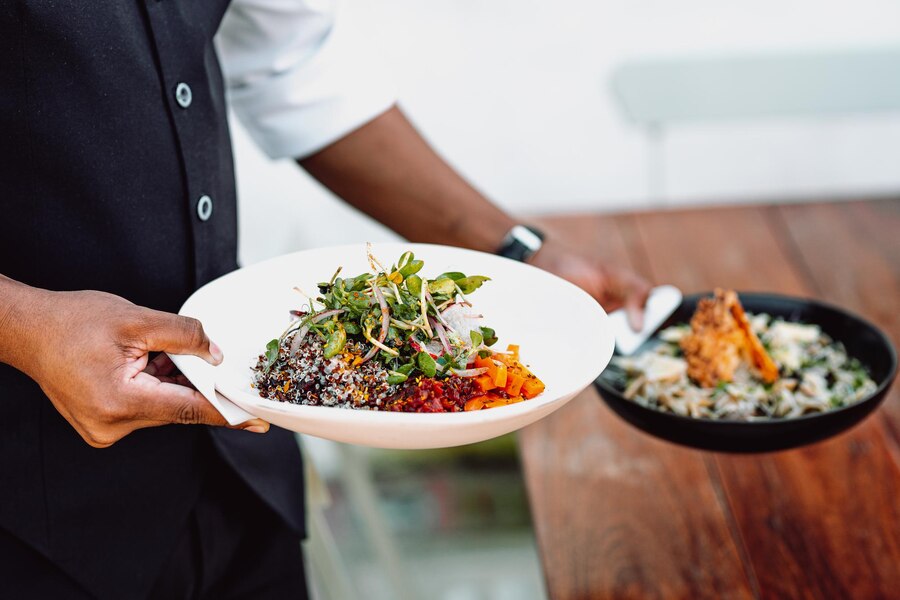
#6. Reusable Water Bottle Business
Starting a business that sells reusable water bottles will help reduce plastic waste and pollution. Single-use plastic water bottles are filling landfills and polluting the oceans.
Practical Steps
- Innovative with materials: Offer sustainable alternatives to plastic water bottles, such as those made from stainless steel, bamboo, or recycled plastic.
- Partner with eco-friendly brands: Partner with schools, companies or gyms to promote your products and raise awareness.

#7. Local Recycling Business
Recycling is a sustainable and effective way to reduce waste, but not all recyclable materials reach designated facilities or centres. Other challenges include the lack of access to proper recycling resources in some communities. Starting a local recycling business can help by providing services that ensure all recyclables are carefully sorted and processed.
Practical Steps
- Focus on niche materials: Specialise in recycling waste materials that are not widely accepted by municipal recycling programs –this can include textiles, e-waste or household hazardous materials.
- Partner with local businesses: Build a strong relationship with local companies to ensure that waste materials are collected and properly recycled.
David Biderman from the Solid Waste Association of North America explains that people don’t realise that many recyclables end up in landfills because of improper sorting, formally known as “aspirational recycling” (throwing non-recyclables into recycling bins, leading to contamination). A local recycling business that specialises in niche materials has the potential to fill a gap in many communities.

Learn More: The Role of AI in Promoting Sustainable Living
#8. Green Pest Control
Traditional pest control in agriculture relies heavily on the use of synthetic pesticides that are harmful to the environment and human health. Green pest control businesses offer a sustainable alternative to pest management in farms and gardens. According to experts, the use of eco-friendly pest control is gaining popularity, particularly in urban settings where consumers are looking for safer, more natural alternatives to traditional pesticides.
Practical Steps
- Use natural solutions: Start by offering pest control services that use non-toxic repellents like essential oils, neem oils, or diatomaceous earth (DE).
- Educate clients: Teach clients how to prevent pests naturally with methods like companion planting in gardens or physically sealing off entry points to prevent insects from entering their homes.

#9. Recycled Art
You can bring your creativity to life by starting a recycled art business, where you transform waste materials into unique works of art. This is a business idea that aims to reduce waste while showcasing creativity.
Practical Steps
- Collect materials: Collect recyclable materials, like plastics, metals or fabrics and repurpose them into something creative.
- Sell your artwork: You can market your creations online through platforms like Etsy or put them on display at local craft fairs and markets.

#10. Green Interior Design
Many homeowners are looking for eco-friendly furniture and décor. Launching a green interior design business will attract eco-conscious homeowners who desire a sustainable and stylish décor in their living space.
Practical Steps
- Source sustainable products: Start by offering sustainable services to clients with eco-friendly fabrics, furniture, and décor items made from materials like reclaimed wood, organic cotton, and recycled metals.
- Provide energy-saving solutions: Educate your clients on the importance of reducing their energy consumption with green lighting and heating options.

#11. Upcycled Furniture
Upcycling old furniture extends its lifecycle while reducing waste. A business that upcycles furniture will attract eco-minded clients who would rather buy upcycled furniture instead of new furniture.
Practical Steps
- Find old furniture: Search for old or damaged furniture at thrift stores or garage sales.
- Restore and resell: Refurbish old furniture and sell it online or at local markets.

#12. Green Gift Shop
A green gift shop offers a variety of eco-friendly products such as beauty supplies, clothing, décor, and home goods. This kind of shop can either be operated online or in a physical location.
Practical Steps
- Stock eco-friendly items: Offer gifts made from sustainable materials such as recycled paper, bamboo, or organic cotton.
- Promote your shop online: Expand your business to reach a wider audience through social media and e-commerce platforms.
According to Joseph Schlossberg and James Parker, an expert on eco-retail, sustainability retail is important, and its effects are undeniable. Curating eco-friendly products that are also aesthetically appealing not only attracts eco-conscious consumers but can help a business stand out in a crowded market.

#13. YouTube Channel on Sustainability
Starting a YouTube channel on sustainability can educate others on the importance of adopting a sustainable lifestyle. Your channel can be engaging and inspire others to make better decisions for the environment. Additionally, creating such a channel can be both profitable and impactful.
Practical Steps
- Choose a niche: Your channel should focus on discussing specific sustainability topics like green living, zero-waste lifestyle, DIY sustainability projects, etc.
- Monetise your content: As your follower base grows, you can earn revenue through YouTube’s ad programs or partner with brands for sponsored content.

#14. Second-hand Retail
Starting a business that resells used items is one of the most effective ways to reduce waste. This venture can be profitable as it appeals to eco-conscious consumers who prefer used items over new ones.
Practical Steps
- Source inventory: Explore thrift stores and online markets to get used items to resell to others.
- Platform options: You can sell second-hand products on Depop, eBay, and Poshmark.

#15. Eco-Friendly Toy Business
Children’s toys are often made of plastic, which contributes to landfill waste. You can start a business to provide sustainable alternatives to plastic toys—this will help in reducing plastic waste and pollution.
Practical Steps
- Use sustainable materials: Create toys using biodegradable materials like bamboo, organic cotton, and wood.
- Target eco-conscious parents: Market your products to parents who are making environmentally friendly choices for their children.

Learn More: 10 Eco-Friendly Appliances You Need in Your Home
#16. Sustainable Fashion
Sustainable fashion is gaining traction, with consumers opting for fabrics made from eco-friendly materials like organic cotton, bamboo, and hemp. Starting a green fashion brand today will be profitable and contribute to reducing textile waste.
Practical Steps
- Source sustainable fabrics: Collaborate with manufacturers to gain access to ethically produced textiles.
- Sell online: Advertising your business online will attract more eco-conscious consumers. Use reliable online platforms like Shopify or Etsy to sell your products.

#17. Eco-friendly Landscaping
Traditional landscaping can be resource-intensive as it often requires large amounts of water, energy, and fertiliser. Eco-friendly landscaping, on the other hand, uses native plants and incorporates green practices to ensure environmental sustainability. According to an article on CalRecycle, sustainable landscaping is not only effective in reducing waste and resource depletion—it also creates spaces that support local wildlife, promote biodiversity, and reduce the carbon footprint of garden maintenance.
Practical Steps
- Promote native plants: Design outdoor gardens with native plants that require less water and maintenance.
- Reduce waste: Use compost on farms and gardens to improve soil health and reduce waste.

#18. Environmental Publication
How about starting an environmental publication focused on sustainability? Yes, you can start raising awareness about green living and sustainable practices by writing passionately about this issue.
Practical Steps
- Write about trending topics: Start a weblog and write about issues like climate change, recycling, renewable energy, sustainable agricultural practices, and zero-waste living.
- Monetise through ads and partnerships: As your publication grows, you can monetise it through advertising, partnerships with green businesses, and sponsored content.
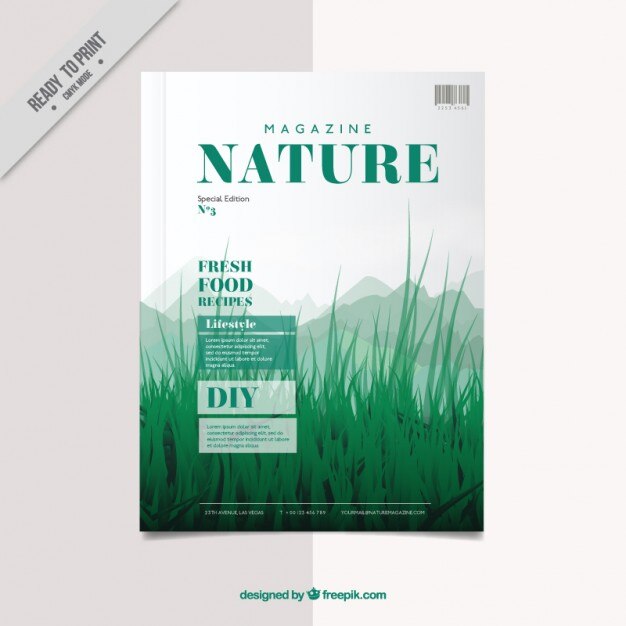
#19. Bicycle Repair and Refurbishing
Biking is more sustainable than driving a gasoline-powered vehicle. Starting a bicycle repair and refurbishing business can be profitable, reduce carbon emissions, and encourage others to use bicycles.
Practical Steps
- Learn basic bike repair: Educate yourself through online courses or watch more video tutorials on bicycle repair and maintenance.
- Target local cyclists: Offer repair and maintenance services to local communities or student cyclists on campus.
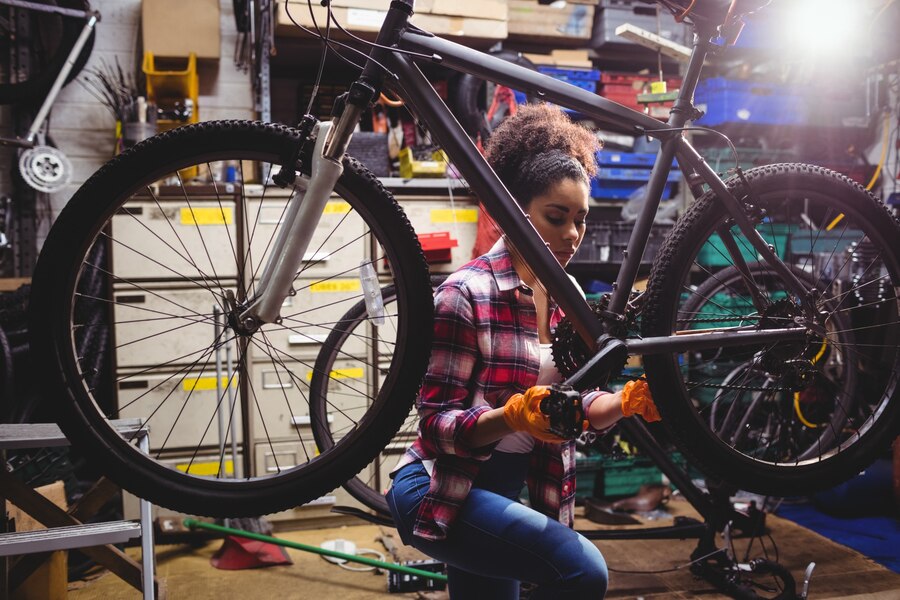
#20. Composting Business
Composting is a sustainable and effective method to reduce food and organic waste. A composting business is beneficial to farmers growing food organically.
Practical Steps
- Offer services to homes and businesses: Collect food scraps from grocery stores, food trucks, and restaurants to compost.
- Sell compost: Process the collected food scraps into compost and sell to organic farmers, gardeners, or landscapers.
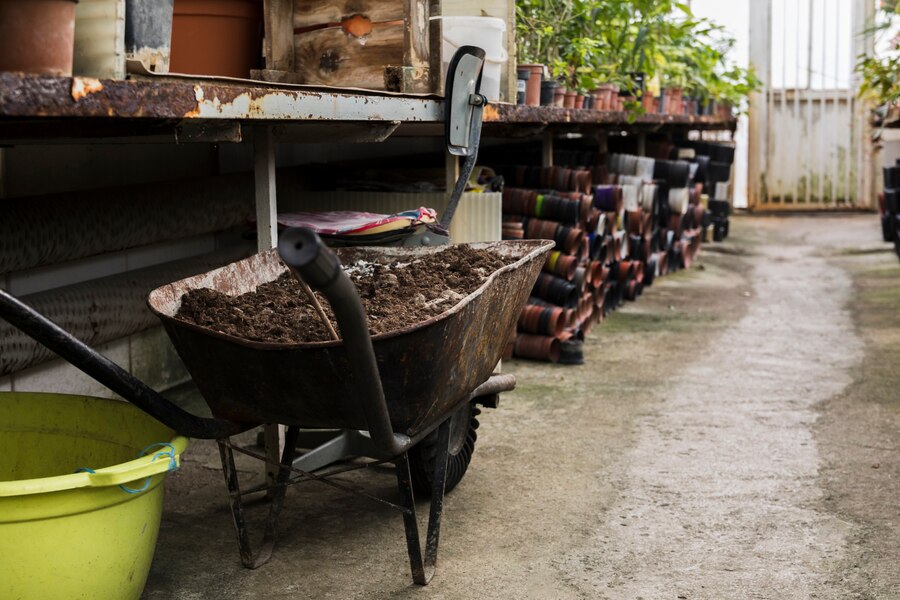
Conclusion
These business ideas are sustainable just as they are profitable. Aspiring entrepreneurs can start small with these ideas and grow into a well-known brand. Whether you are interested in recycling waste materials, installing solar panels, or upcycling furniture, there is always an opportunity to make a positive impact.


